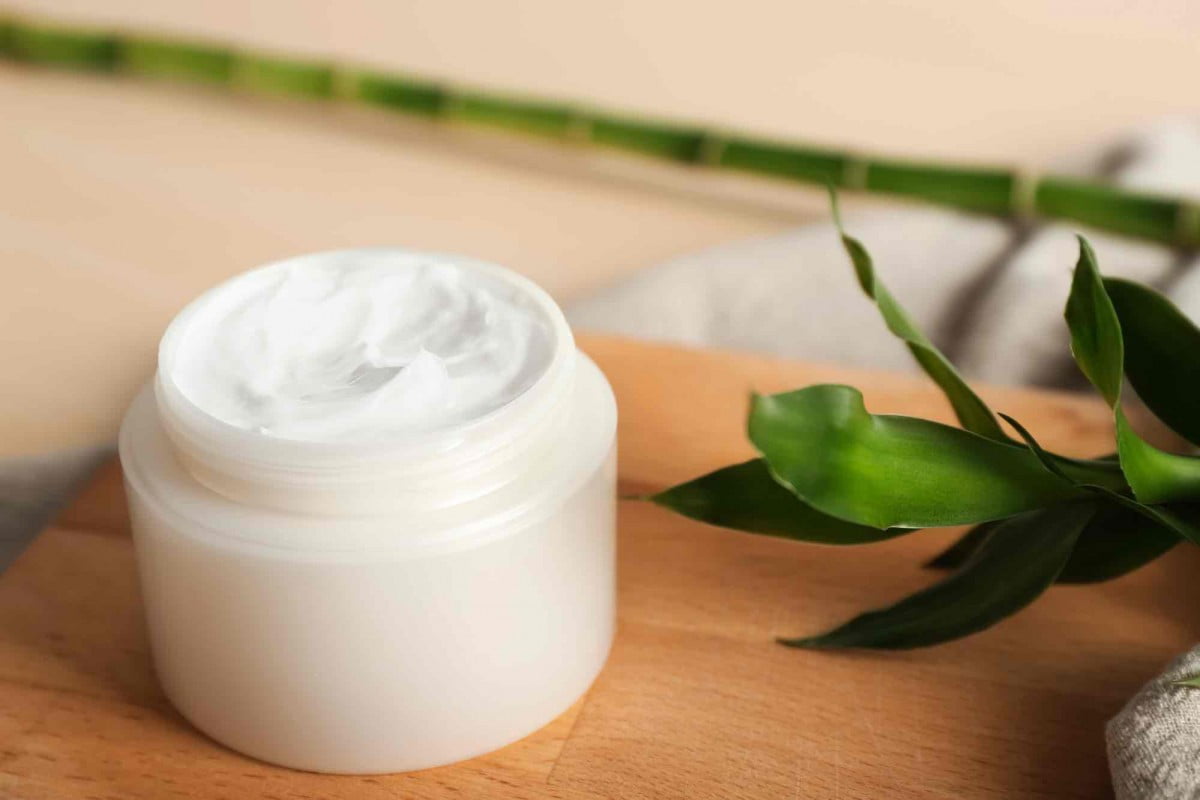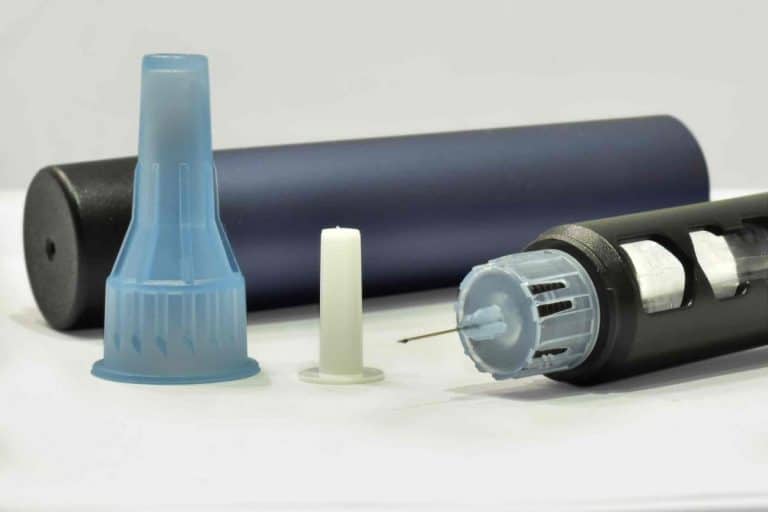What Is The Difference Between Regular Skin Lotion and Diabetic Lotion?

Diabetes is a complex metabolic disorder, affecting many aspects of your body. In this article, I will focus on your body’s largest organ, your skin. Skin damage occurs more frequently in people who have diabetes. For this reason, the skin requires more attention, and using the right lotions to moisturize the skin is very important. But what is the difference between diabetic and regular skin lotions?.
Diabetic lotions are designed to protect the skin, improve circulation, combat dry skin, and to help prevent bacterial infections which can create severe problems that can lead to limb amputations. Regular lotions have perfumes, fragrances, and chemicals that can irritate or damage the skin of the person with diabetes.
People with diabetes can develop very dry and cracked skin. These conditions promote increased risk of acquiring infections, which can lead to more severe complications. See the ADA’s (American Diabetes Association) article on skin complications.
I will explain the differences between regular skin lotions and lotions designed for people with diabetes. There are other important aspects of treating your skin that you should be aware of, and I will share these, as well.
The Relationship Between Skin Problems And Diabetes
There is a high tendency among people with diabetes to encounter fluid loss from the body due to high levels of glucose in the blood. This situation can cause the skin to become dry in several areas, including the legs, arms, elbows, and feet.
How Does Bacteria Enter the Skin of Someone with Diabetes?
When your skin cracks, bacteria can enter these spaces and cause infections, making skincare very important. Daily foot checks are recommended to detect possible cracks early enough to prevent them from becoming severe wounds, ulcers, infections, or amputation of a limb.
My goal is to educate you on how to keep your skin in the best possible condition. Managing your blood glucose levels is a must, but it’s also important to moisturize and care for your skin.
Lets take a look at how lotions for people with diabetes can help you.
How Does Diabetes Affect My Skin?
- Diabetes causes reduced blood circulation, so nutrients and oxygen are slow to travel efficiently through your body, especially to your feet.
- Diabetes can cause nerve damage to small vessels that prevent your body’s ability to control moisture and oils in your skin.
- The role of inflammatory response patterns in both type 1 and type 2 diabetes is gaining interest. Future research is needed to identify the possible mechanisms that lead to inflammation of the skin.
- As a result of frequent urination, people who have diabetes tend to be dehydrated. This will reflect in the appearance and health of your skin.
Diabetes can kill off skin cells, weakening your immune system. This can expose you to additional problems, including those of the skin.
Infections, dehydration, numbness, and loss of skin sensation will also be factors. When neglected infections spread, the possibility of amputation is increased.
Lotions for people who have diabetes will be hypoallergenic, fragrance-free, alcohol-free, and chemical-free. Regularly using these products will help retain moisture in your skin, provide protection, and help prevent serious problems. They are recommended by dermatologists, and labeled as such.
Unfortunately, many people believe that regular skin lotions and diabetic lotions are the same. However, they may be unaware of the differences, the benefits vs. risks.
What are the Benefits of Diabetic Lotions?
- Hypoallergenic
- Fragrance-free
- Alcohol-free
- Dye-free
- Formaldehyde-free
- Paraben-free (chemical preservatives in cosmetics)
- Contain minerals or nutrients designed to protect the skin
- Dermatologist recommended
- Contain nutrients that protect the skin against irritation, UV rays, ulcers, wounds, and blisters
- Contain minerals and vitamin E, which help improve skin hydration and the body’s immune system
Below, I will review some of the main benefits that people with diabetes will obtain by using lotions specially formulated to treat their disease.
The lotions have received the clinical approval of specialists in health, indicating that they are an effective method to reduce the side effects of diabetes on the skin.
Healthy circulation is contributed to by diabetic lotions that contain Omega 3 and Vitamin E. As blood circulation is improved, toxic substances can be eliminated from the skin, and nutrient absorption is enhanced.
Diabetic lotions penetrate the skin faster and more effectively than regular lotions. This property is vital in helping to repair damaged skin cells and contribute to rehydration of the skin.
Diabetic lotions may contain aloe vera. This natural product is rich in hypoallergenic and antibacterial components, and it is vital because of its healing properties. It can help reduce dehydration and irritation, and it also blocks free radicals.
Diabetic lotions can maintain skin hydration much longer than regular lotions.
These lotions also contribute to the maintenance of blood sugar levels, allowing for more stability.
What are Potential Risks Associated with Regular Skin Lotion?
Regular skin lotions may contain products not suitable for people with diabetes such as:
- Alcohol, which dehydrates the skin
- Colored dye, which can cause problems for those with sensitive skin
- Fragrance; which can serve as an irritant to the eyes and skin
- Parabens, which are preservatives used in cosmetics
Fragrances, Perfumes, Irritation, and Diabetic Skin
If you have diabetes, you should be cautious regarding the care of your skin. This care begins with daIly checks to make sure there are no cuts, wounds, blisters, red areas, or sores.
If you have an abnormal area on your skin, treat it as soon as you are able. Monitor your wound or abnormal skin to make sure that it is healing, and not getting worse.
Additionally, always wash your feet with luke-warm water and pat them dry, without leaving any area with moisture.
Continuing with this care process, you should use a lotion appropriate for diabetes, without perfume or fragrance. Many cosmetics contain phthalates, including the fragrance in your lotions.
Phthalates are a family of chemicals. They are known to cause irritation to the skin of both people and animals.
I advise my clients to avoid using lotions that contain alcohol. Alcohol is a drying agent that will counter your goal of maintaining moisture in your skin.
Recommended Skin Lotions For People With Diabetes
While compiling my information for my blog, “What Are the Best Soaps for People with Diabetes?,” I had the opportunity to speak with the staff from Twin Ports Dermatology Clinic in Duluth Minnesota.
They encourage the use of lotions that are hypoallergenic, free of alcohol, and dermatologist approved. Their top recommendation is CeraVe moisturizing cream or moisturizing lotion. The cream is designed for extremely dry skin.
CeraVe contains contains hyaluronic acid, which is naturally produced by your body. It’s function is to trap water in your tissue cells.
CeraVe also contains ceramides, which help fill in the gaps between skin cells so the skin can seal in moisture and keep impurities out.
In my practice at both St. Luke’s Hospital and the Center for American Indian Resources, providers were granted the opportunity to pass out various samples of lotions for people with diabetes.
One of our complimentary samples was Eucerin. We were given the original healing soothing repair cream, as well as the Aquaphor soothing skin balm to distribute, but they have multiple products.
Personally, I like both of these products, as did most of my patients. The Aquaphor is a balm, similar to Vaseline in texture. I do not have diabetes, but I do have extremely dry skin. The Aquaphor is helpful for me.
A second lotion that I provided as samples was Gold Bond Diabetic Dry Skin formula.
Many of my patients love this lotion, and I do too. However, I have had 2 or 3 people tell me that it made their skin feel “weird.” I did not get a more specific description, but I question if this product has an ingredient that affects a very small amount of people. (I say, “very small” because I have given hundreds of samples over the years.)
I do recommend the Gold Bond Dry Skin lotion; however, if you are someone that has extremely sensitive skin, this might not be the product for you.
Itching And Diabetic Skin
With itchy skin, diabetic lotions can be beneficial only if the person has a comprehensive and adequate skincare method.
What Actions Can I Take to Manage My Skin?
- Do not wash your skin more often than twice a day, as this can remove the sebum (natural, oily secretion from your glands to provide protection) from the skin that prevents dehydration.
- Use only mild and gentle cleansers, they are more tolerable to diabetic skin than those with strong fragrances and chemicals. Perfumed soaps promote dehydration and skin irritation.
- Use specialized diabetic lotions to conserve moisture and aid skin recovery. In addition, the penetration of these lotions is very effective and long-lasting on the skin.
- When using a lotion for diabetes, apply the product to the top and bottom of your feet. Avoid using lotion between your toes due to the moisture.
- The main action that every person with diabetes can take to avoid skin irritation is not to scratch. In addition, it is also a way of not contributing to the creation of infections that can aggravate the situation.
Closing Thoughts on Regular Skin Lotion vs Diabetic Skin Lotion
People who have diabetes are more likely to develop skin complications. Dry skin, rashes, and small scrapes in the skin invite unwanted bacteria that can lead to more severe issues.
If your skin is not cared for properly, little issues can set in and manifest in a way that can complicate your condition. As a part of your diabetes management plan, be sure to use the right products to help prevent problems, including the right lotions.
Using hypoallergenic, chemical-free, dermatologist-approved lotions will better protect your skin from dehydration, irritations, wounds, ulcers, and blisters.
If you have questions, don’t be afraid to ask your diabetes care team, pharmacist, or dermatologist.






